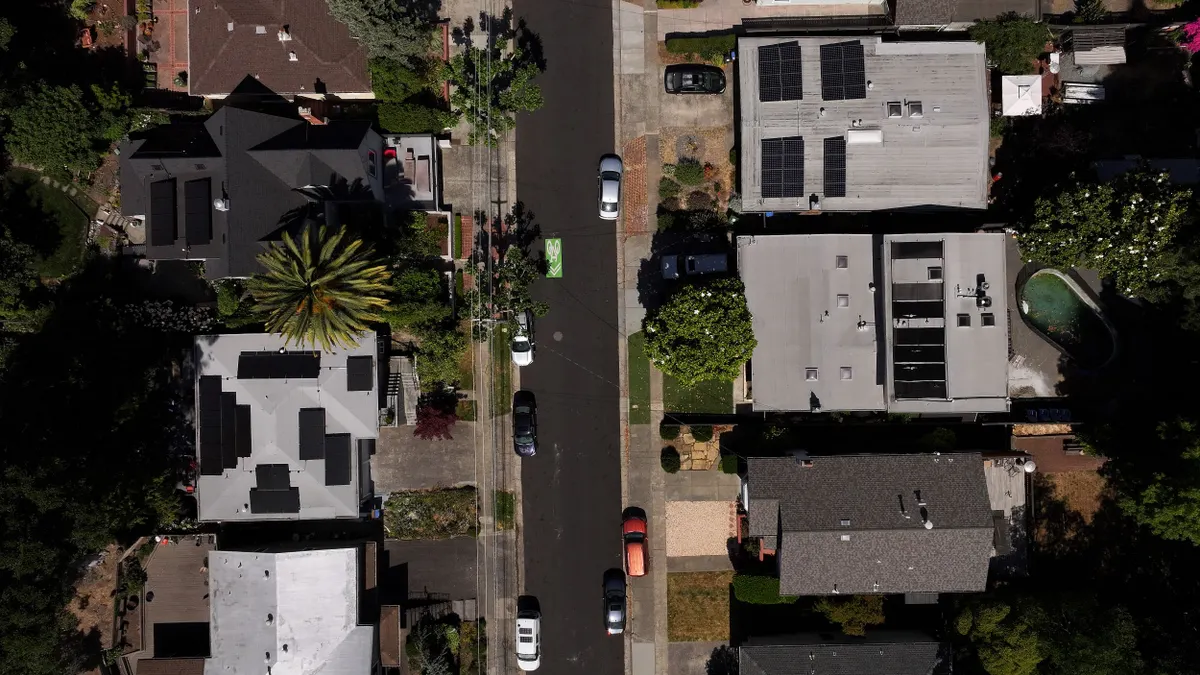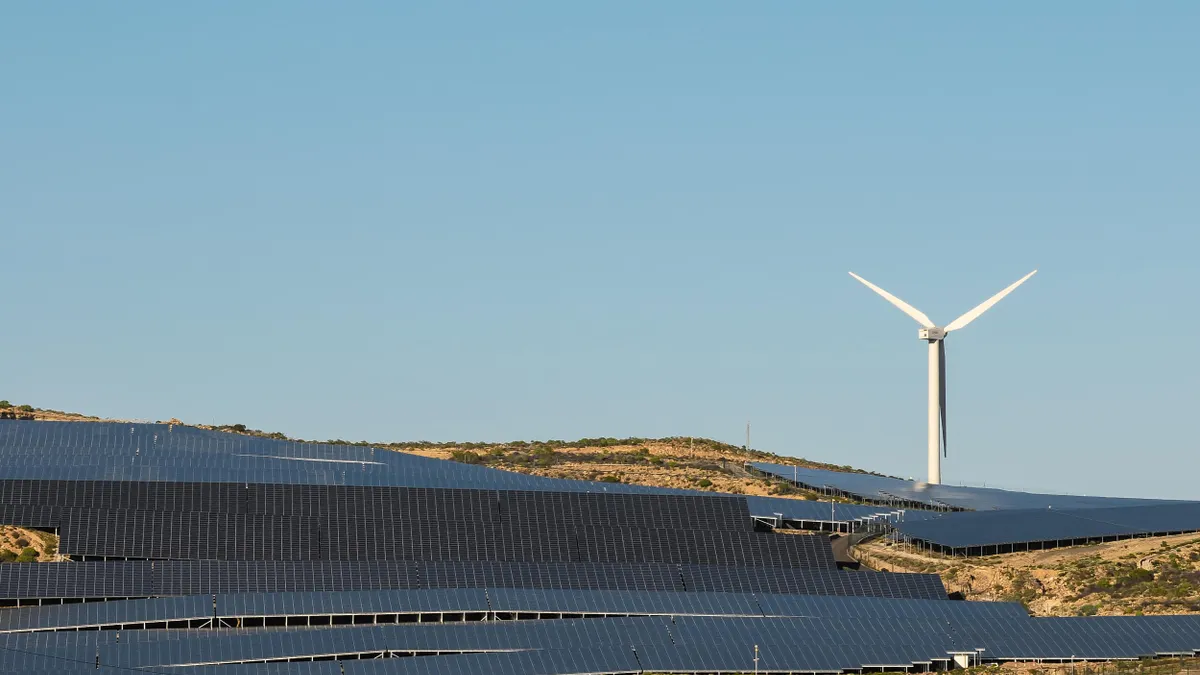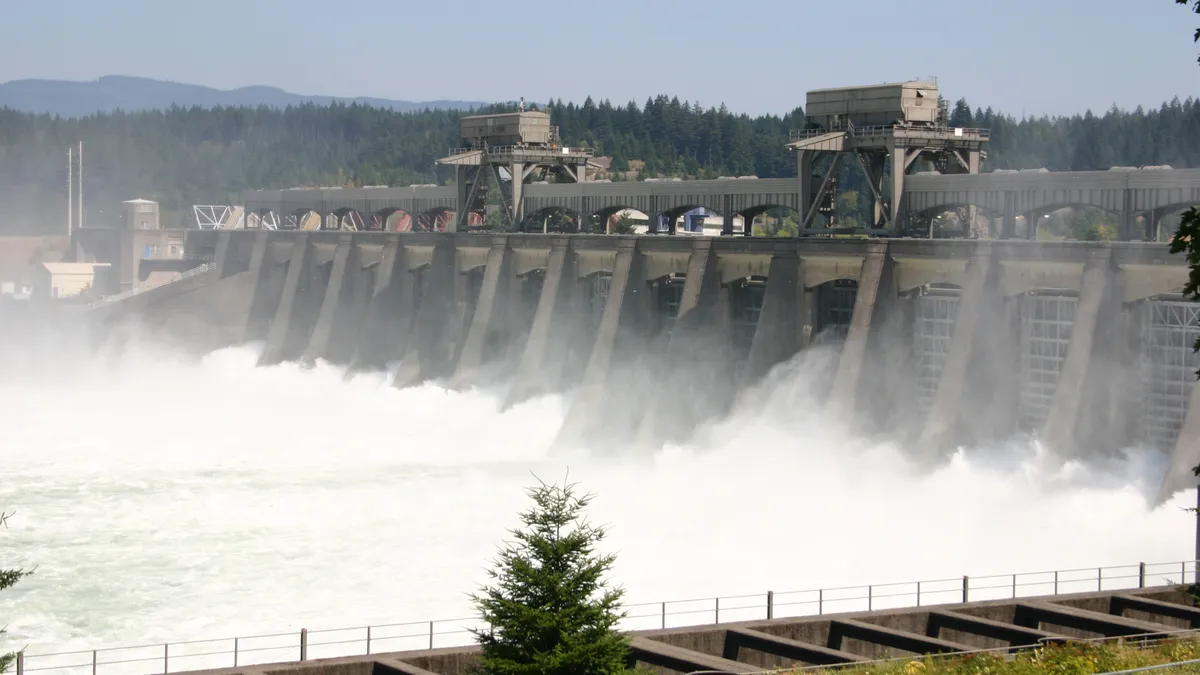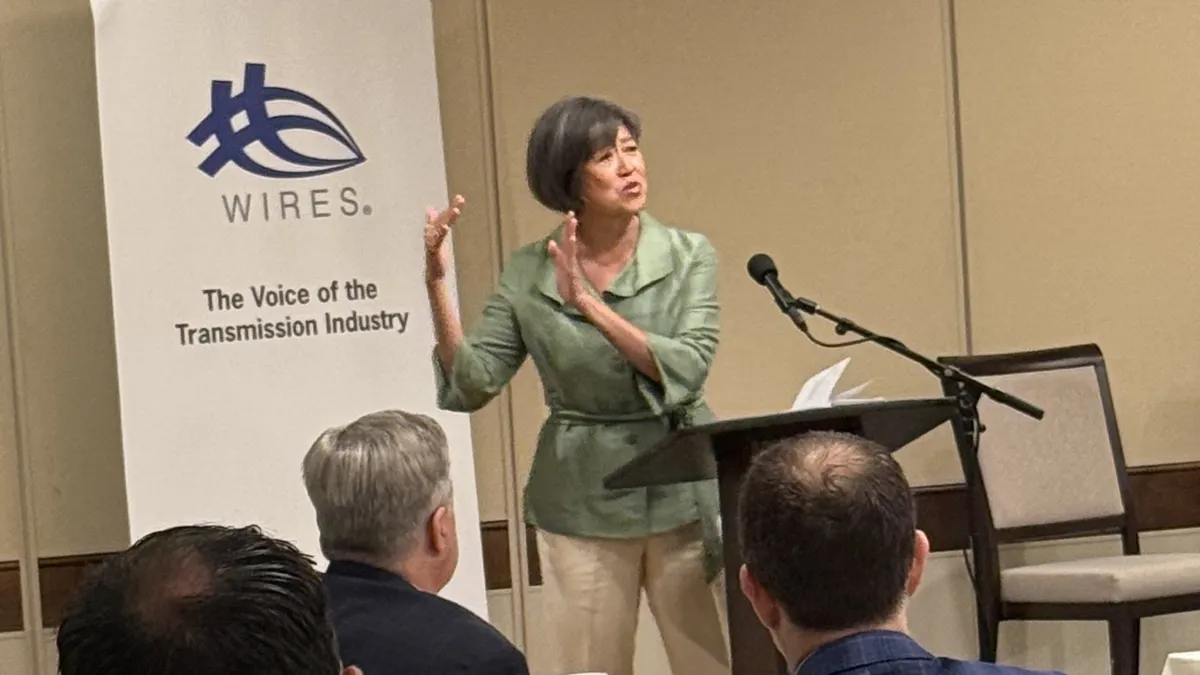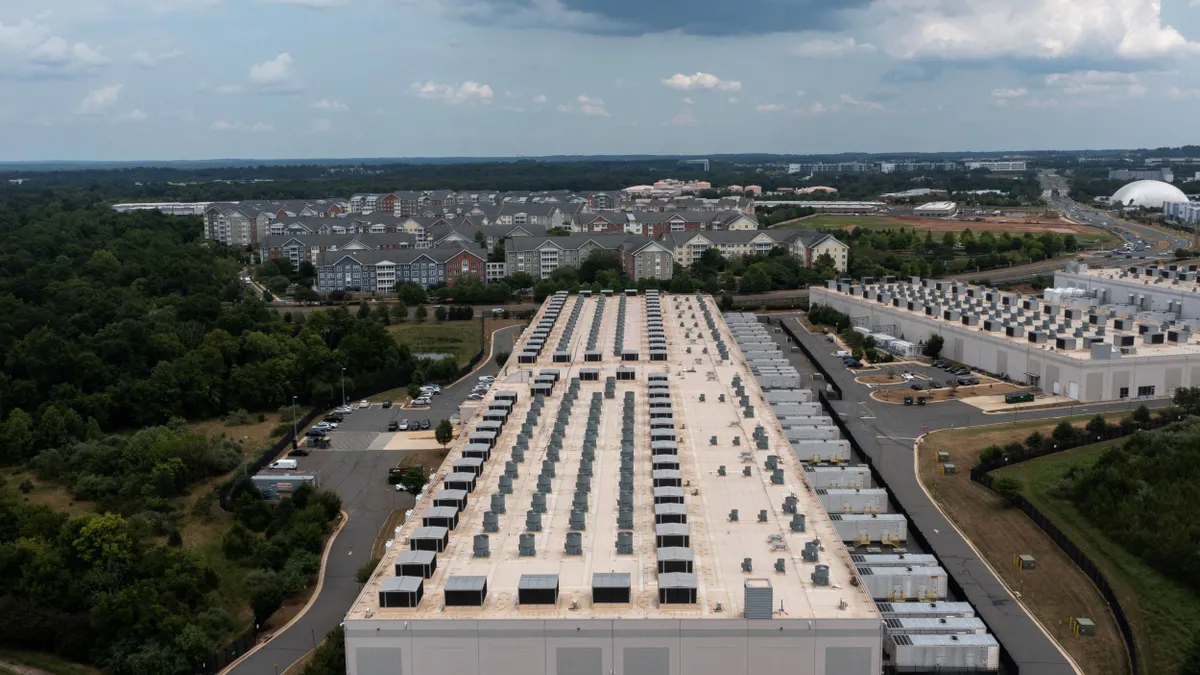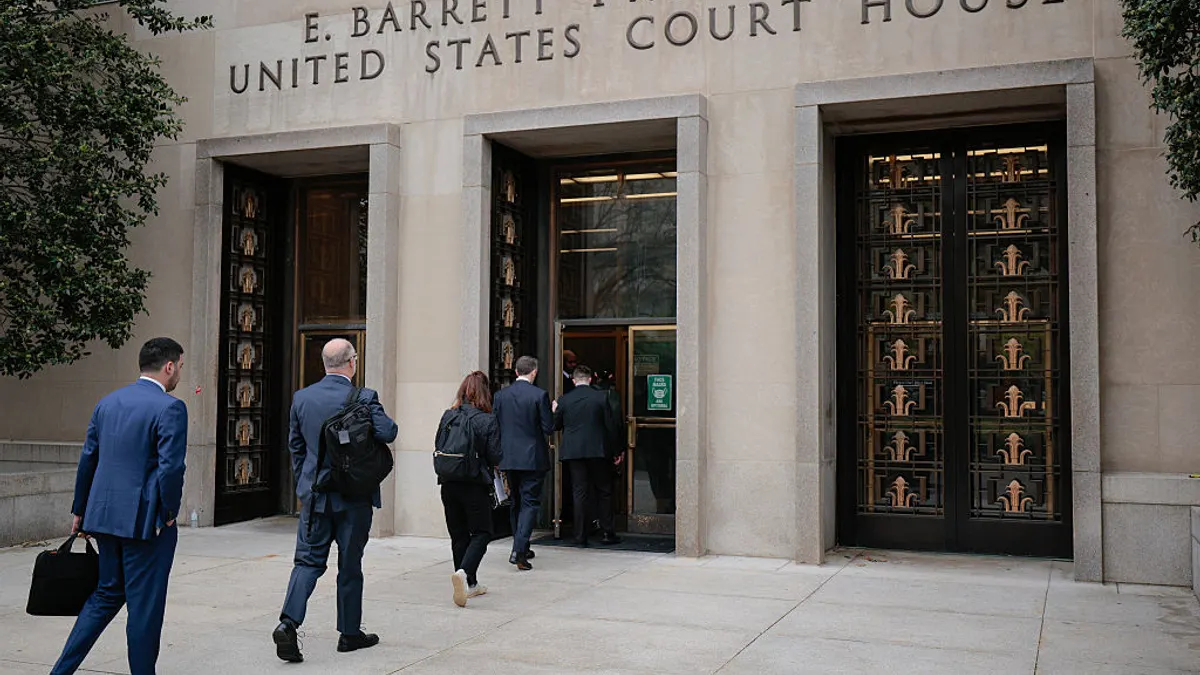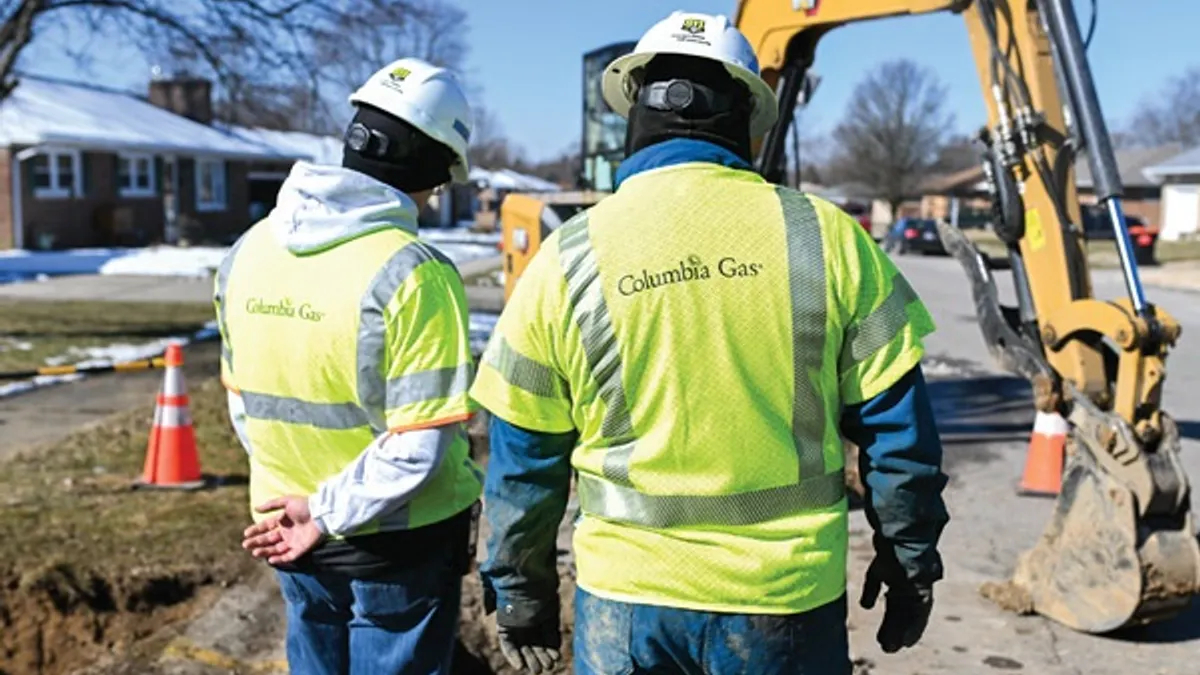The Federal Energy Regulatory Commission needs to bolster its reviews of how proposed natural gas infrastructure projects could affect the climate as well as environmental justice communities while also making sure they are needed to keep its decisions from being overturned by courts, according to agency head Richard Glick.
In the last several years, FERC often cut corners in its environmental reviews, Glick said in a letter, released Sept. 27, to Sen. John Barrasso (R-Wyo.), the Senate Energy and Natural Resources Committee's ranking member.
"That dramatically increases the risk that the courts will invalidate the commission's decisions, which in turn adds substantial risks for the infrastructure developers who rely on commission orders when investing millions, and sometimes billions, of dollars in new projects," Glick said.
Glick's letter highlights flaws in FERC's review process for gas infrastructure that should be addressed as soon as possible by updating the agency's decades-old natural gas certificate "policy statement," according to an attorney with New York University's Institute for Policy Integrity.
Since he joined FERC four years ago, Glick has argued the agency isn't taking a sharp enough look at how gas pipelines and liquefied natural gas facilities affect the climate as well as environmental justice communities, or whether the proposed facilities are even needed.
Glick's letter comes as FERC is considering changing how it reviews natural gas infrastructure under a policy statement set in 1999.
The agency launched a review of its natural gas policy in April 2018. After Glick was elevated to chairman last January, he asked for another round of comments from stakeholders on issues like how to evaluate greenhouse gas (GHG) emissions.
In the meantime, FERC in May said it would conduct supplemental environmental impact statements on certain natural gas projects for which the agency had already issued environmental assessments, a move that has delayed decisions on those projects.
Glick's letter was in response to concerns Barrasso expressed earlier this month in a letter to the agency about possible "irregularities" in FERC's reviews of gas projects and a possible energy market in the Southeast. Glick defended the additional reviews in the letter to Barrasso, saying it would help FERC's final decisions survive court reviews.
Withstanding the scrutiny of the courts
This summer, the D.C. Circuit Court of Appeals vacated FERC's approval of the Spire STL gas pipeline between Illinois and Missouri, saying FERC failed to show it was needed. The court also remanded FERC's approval of the Rio Grande LNG and Texas LNG export facilities in Texas over inadequate GHG and environmental justice reviews.
"The commission owes it to all stakeholders to avoid creating similar uncertainty in future proceedings," Glick said.
Glick said he understood pipeline and LNG companies want prompt decisions on their proposals, which is why he has moved forward with projects that no one filed protests over and therefore cannot be appealed in court, even in cases where he had concerns about their environmental analysis.
"I believe that an approach along these lines is the appropriate way to balance our responsibility to issue legally durable decisions with developers' interest in receiving a prompt decision," Glick said.
The recent court decisions and an earlier one involving the Sabal Trail gas pipeline in the Southeast "have appeared to point the commission in the direction of a more expansive [National Environmental Policy Act] review," FERC Commissioner Mark Christie, a Republican, said in a letter to Barrasso released Sept. 28.
Pipeline companies support "robust and legally compliant" environmental reviews by FERC, partly so projects can move ahead without litigation delays, according to an Interstate Natural Gas Association of America spokesperson.
"The commission owes it to all stakeholders to avoid creating similar uncertainty in future proceedings."

Richard Glick
Chairman, FERC
However, FERC’s decision to reopen completed environmental reviews and pursue lengthier EISs are not required by the National Environmental Policy Act or by courts and is creating uncertainty and delays, the spokesperson said.
"The commission has stated these lengthier analyses are needed because it is unsure how to determine the significance of climate impacts, but FERC itself can resolve this uncertainty and complete environmental reviews more timely by establishing clear and lasting standards for assessing a project’s greenhouse gas emissions in its NEPA reviews," the spokesperson said.
FERC staff rejects using social cost of carbon in pipeline review
Under the Biden administration, the Environmental Protection Agency has been pressing FERC to use a key climate assessment tool known as the social cost of carbon. Federal agencies use the social cost of carbon methodology, which FERC has never used, to put a price tag on how GHG emissions may affect the climate to provide context to their decisions.
Glick sent his letter to Barrasso the day FERC staff dismissed the EPA's advice to use a social cost of carbon methodology to help understand how a Tennessee Gas Pipeline Co. natural gas pipeline project, known as the East 300 Upgrade project and designed to increase fuel supplies in the New York City area, will affect the climate.
Staff said the project by the Kinder Morgan subsidiary in New Jersey and Pennsylvania will contribute to climate change but it is impossible to determine if GHG emissions related to the project will be "significant." Glick has argued using a social cost of carbon framework could help FERC assess how significant a project's carbon emissions are.
"We are unable to assess the project's contribution to climate change through any objective analysis of physical impacts attributable to the project," FERC staff said in a supplemental environmental impact statement. "We are unaware of an established threshold for determining the project's significance when compared to established GHG reduction targets at the state or federal level."
FERC staff said issues like the social cost of carbon methodology, how the commission decides if a project is needed and what a "significant" amount of GHG emissions is are being tackled in the agency's broad review of its gas policy, and it is inappropriate for staff to consider them in the East 300 Upgrade EIS.
With various issues left unaddressed, the EIS underscores how important it is for FERC to change its policy statement on natural gas infrastructure, according to Max Sarinsky, a senior attorney with New York University's Institute for Policy Integrity.
"This will help ensure that FERC does not act as a rubber-stamp for projects that lock in fossil fuel infrastructure and impede a speedy transition away from fossil fuels," Sarinsky said.
However, there may be no action on the policy statement until the Senate confirms Willie Phillips, a Democrat and chairman of the Public Service Commission of the District of Columbia, to fill a vacant seat at FERC, Sarinsky said.
The five-seat agency has two Democratic and two Republican commissioners.
Phillips was formally nominated Sept. 20, but the Senate Energy and Natural Resources Committee hasn't scheduled a hearing yet.
It is unlikely FERC will approve major gas projects until the agency revises its process for reviewing them, according to Gillian Giannetti, an attorney with the Natural Resources Defense Council.
Through July, FERC has approved 14 gas pipeline projects in 2021, half as many as it did in the same period last year, according to the agency's latest monthly infrastructure report. The approved projects can deliver 2.4 billion cubic feet of gas a day, down from 5.9 billion cf/d approved in the first seven months in 2020.






